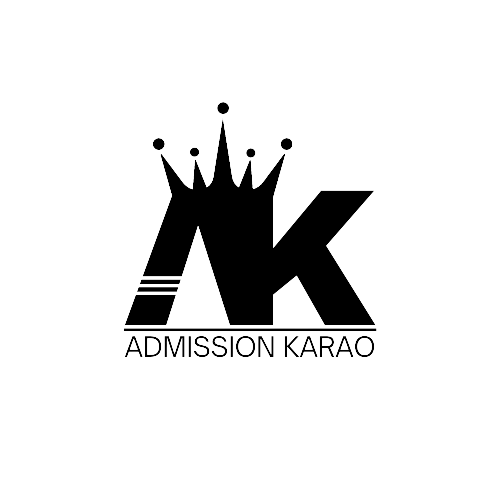Overview
TERI School of Advanced Studies (TERI SAS) is a leading institution for higher education in India, located in New Delhi. It was established in 1998 as a research, education and outreach center of The Energy and Resources Institute (TERI), a non-profit organization that focuses on sustainable development.
TERI SAS offers a wide range of postgraduate and doctoral programs in various fields related to sustainable development such as Environmental Studies, Natural Resources Management, Sustainable Development Practice, Climate Science and Policy, Renewable Energy Technologies and Management, Water Resources Management, and Public Policy and Sustainable Development. The courses are designed to provide students with a strong theoretical foundation as well as practical knowledge and skills needed to address global sustainability challenges.
TERI SAS has a highly qualified and experienced faculty, with many professors holding PhDs from prestigious institutions worldwide. The faculty members are actively involved in research and consultancy projects in collaboration with industry and government organizations.
In addition to academic programs, TERI SAS also conducts research, policy analysis and advocacy in various areas of sustainable development. It has collaborations with national and international institutions, including universities and research organizations, for joint research and academic activities.
TERI SAS is recognized by the University Grants Commission (UGC) and is accredited by the National Assessment and Accreditation Council (NAAC) with an ‘A’ grade. It is also a member of various academic and research associations such as the Association of Indian Universities (AIU), Association of Commonwealth Universities (ACU), and the Global Consortium for Sustainability Outcomes (GCSO).
Overall, TERI SAS is a highly regarded institution for sustainable development education and research in India, providing students with the knowledge, skills, and practical experience needed to tackle global sustainability challenges.
Courses
- M.Sc. Environmental Studies and Resource Management
- M.Sc. Geoinformatics
- M.Sc. Climate Science and Policy
- M.Sc. Economics
- M.Sc. Water Science and Governance
- M.Sc. Renewable Energy and Energy Management
- M.Tech. Renewable Energy Engineering and Management
- M.Tech. Urban Development and Management
- M.A. Public Policy and Sustainable Development
- Master of Sustainable Development Practice
- Ph.D. Sustainable Development
The programs are designed to provide a strong theoretical foundation as well as practical knowledge and skills needed to address global sustainability challenges. The curriculum emphasizes interdisciplinary learning and hands-on experience through research projects, internships, and fieldwork.
In addition to the regular courses, TERI SAS also conducts short-term certificate courses and executive education programs for professionals and practitioners who want to upgrade their skills and knowledge in sustainable development. These courses cover topics such as sustainable finance, carbon footprint analysis, environmental impact assessment, and climate change mitigation and adaptation.
Admission Eligibility Criteria
- For Postgraduate Courses:
- Candidates should have a bachelor’s degree in a relevant field with a minimum of 50% marks from a recognized university.
- Candidates in their final year of graduation can also apply, subject to providing proof of completion of their degree at the time of admission.
- For M.Tech. Programs:
- Candidates should have a bachelor’s degree in a relevant engineering field with a minimum of 60% marks from a recognized university.
- Candidates in their final year of graduation can also apply, subject to providing proof of completion of their degree at the time of admission.
- For Ph.D. Programs:
- Candidates should have a master’s degree in a relevant field with a minimum of 60% marks from a recognized university.
- Candidates with a bachelor’s degree in a relevant field and a minimum of 75% marks may also be considered.
Additionally, candidates may be required to appear for entrance exams such as CAT, MAT, GATE, or TERI SAS Entrance Exam, depending on the course. The selection process may also include personal interviews and group discussions.
Top reasons to join TERI School of Advanced Studies
Reputed institution: TERI SAS is a highly reputed institution in India for sustainable development education and research. It is recognized by the University Grants Commission (UGC) and is accredited by the National Assessment and Accreditation Council (NAAC) with an ‘A’ grade.
Excellent faculty: The faculty at TERI SAS is highly qualified and experienced, with many professors holding PhDs from prestigious institutions worldwide. They are actively involved in research and consultancy projects in collaboration with industry and government organizations.
Interdisciplinary approach: The courses at TERI SAS are designed to provide a strong interdisciplinary foundation in sustainable development, covering topics such as environmental studies, natural resources management, renewable energy, water resources management, climate science, public policy, and more.
Practical learning opportunities: The curriculum at TERI SAS emphasizes hands-on experience through research projects, internships, and fieldwork, providing students with practical knowledge and skills needed to address global sustainability challenges.
Collaboration and networking: TERI SAS has collaborations with national and international institutions, including universities and research organizations, for joint research and academic activities. This provides students with opportunities to network and collaborate with peers and experts from diverse backgrounds.
Career opportunities: Graduates from TERI SAS are highly sought after by employers in various sectors, including government, private, and non-profit organizations, working in areas such as sustainability, climate change, energy, environment, and policy.
Overall, joining TERI SAS can provide students with a comprehensive education in sustainable development, as well as opportunities to gain practical experience, collaborate with peers and experts, and build a successful career in the field.
